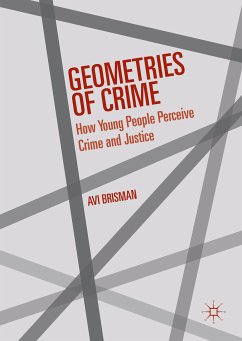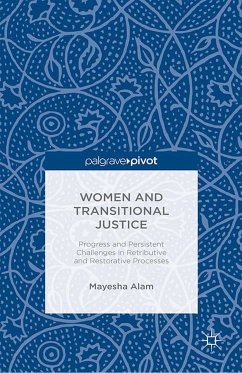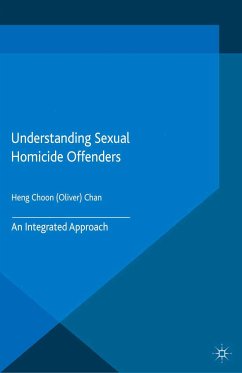
Crime and Human Rights (eBook, PDF)
Criminology of Genocide and Atrocities
Versandkostenfrei!
Sofort per Download lieferbar
27,95 €
inkl. MwSt.
Weitere Ausgaben:

PAYBACK Punkte
14 °P sammeln!
Crimes against humanity are amongst the most shocking violations imaginable. Savelsberg's text provides a much-needed criminological insight to the topic, exploring explanations of and responses to human rights abuses. Linking human rights scholarship with criminological theory, the book is divided into three parts: Part 1: Examines the legal and historical approach to the topic within a criminological framework Part 2: Unpicks the aetiology of human rights offending with real and detailed case studies Part 3: Explores institutional responses to crimes and uses criminological theory to offer ...
Crimes against humanity are amongst the most shocking violations imaginable. Savelsberg's text provides a much-needed criminological insight to the topic, exploring explanations of and responses to human rights abuses. Linking human rights scholarship with criminological theory, the book is divided into three parts:
Seminal yet concise, Crime and Human Rights is written for advanced students, postgraduates and scholars of crime, crime control and human rights. With its fresh and original approach to a complex topic, the book's appeal will span across disciplines from politics and sociology to development studies, law, and philosophy.
Compact Criminology is an exciting series that invigorates and challenges the international field of criminology.
Books in the series are short, authoritative, innovative assessments of emerging issues in criminology and criminal justice - offering critical, accessible introductions to important topics. They take a global rather than a narrowly national approach. Eminently readable and first-rate in quality, each book is written by a leading specialist.
Compact Criminology provides a new type of tool for teaching, learning and research, one that is flexible and light on its feet. The series addresses fundamental needs in the growing and increasingly differentiated field of criminology.
- Part 1: Examines the legal and historical approach to the topic within a criminological framework
- Part 2: Unpicks the aetiology of human rights offending with real and detailed case studies
- Part 3: Explores institutional responses to crimes and uses criminological theory to offer solutions.
Seminal yet concise, Crime and Human Rights is written for advanced students, postgraduates and scholars of crime, crime control and human rights. With its fresh and original approach to a complex topic, the book's appeal will span across disciplines from politics and sociology to development studies, law, and philosophy.
Compact Criminology is an exciting series that invigorates and challenges the international field of criminology.
Books in the series are short, authoritative, innovative assessments of emerging issues in criminology and criminal justice - offering critical, accessible introductions to important topics. They take a global rather than a narrowly national approach. Eminently readable and first-rate in quality, each book is written by a leading specialist.
Compact Criminology provides a new type of tool for teaching, learning and research, one that is flexible and light on its feet. The series addresses fundamental needs in the growing and increasingly differentiated field of criminology.
Dieser Download kann aus rechtlichen Gründen nur mit Rechnungsadresse in A, D ausgeliefert werden.













